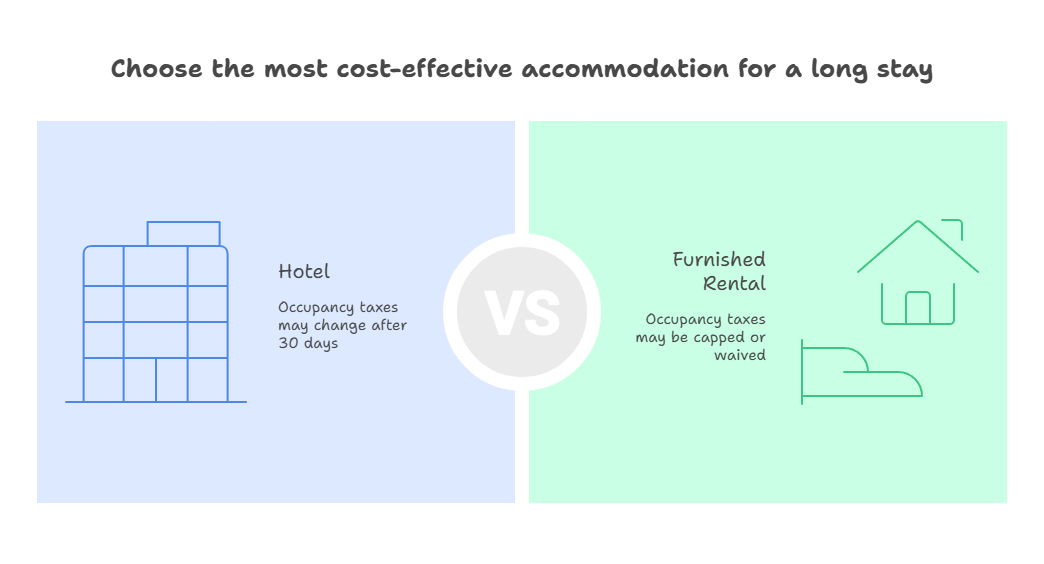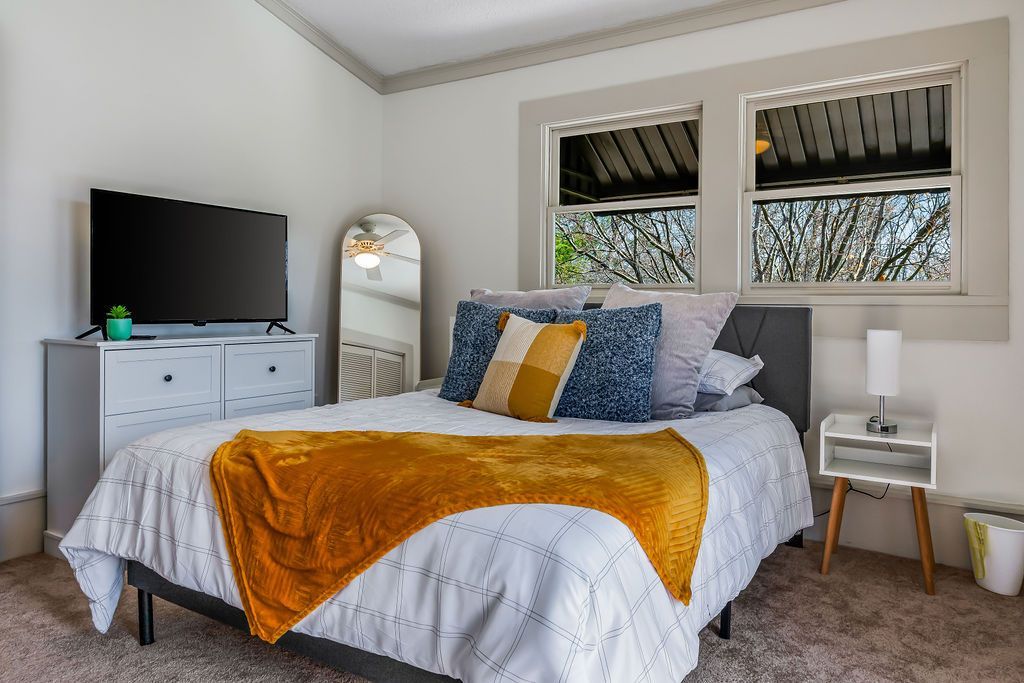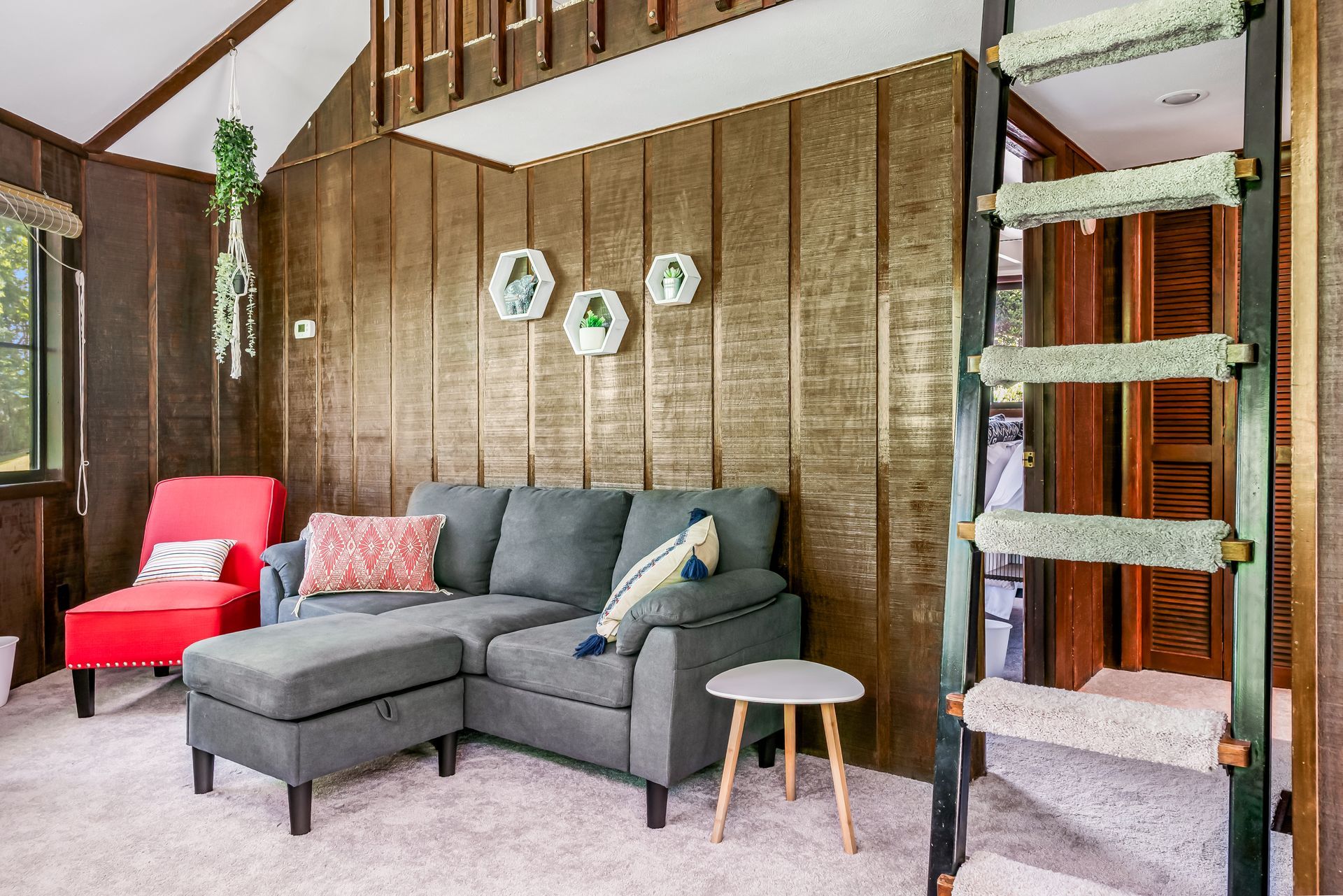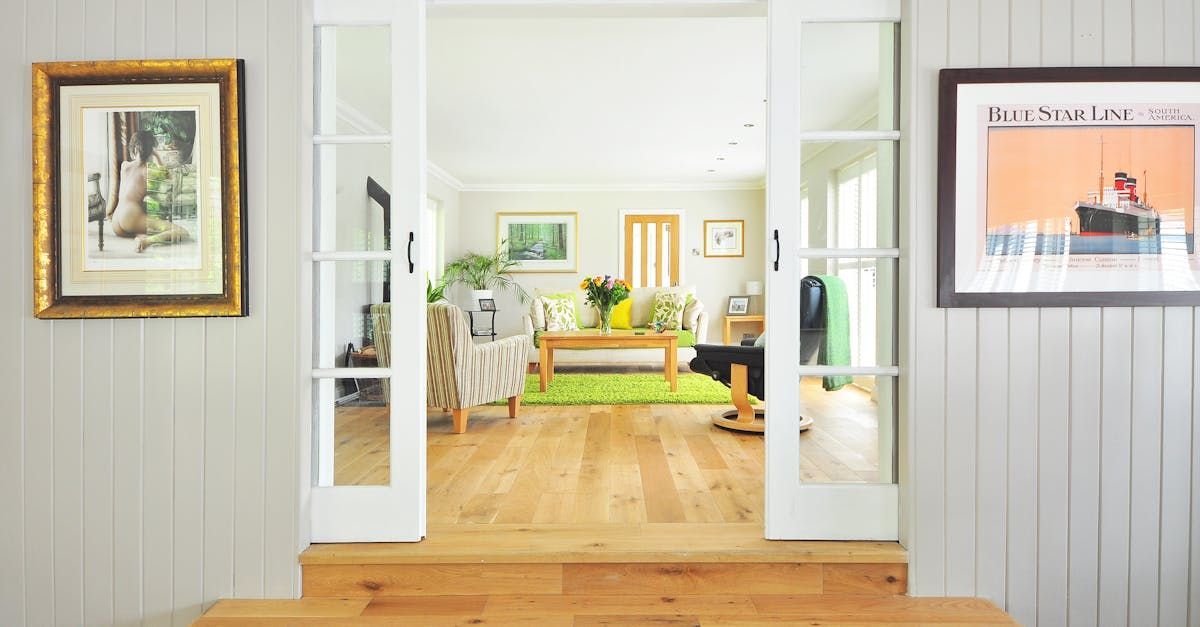Overview
Introduction — the 30‑night decision moment
The moment a stay crosses 30 nights, the math changes — and so should the housing strategy. Corporate rentals are designed for these assignments, often priced monthly with utilities and Wi‑Fi bundled, and they can trigger tax treatments that hotels do not. As CHPA explains, corporate housing is typically fully furnished and move‑in ready for 30‑plus day stays, often at one inclusive cost. See: CHPA: What is corporate housing?.
Total cost of occupancy — why 30 nights is a tipping point
For extended stays, total cost of occupancy goes beyond the nightly rate. Corporate housing commonly uses monthly pricing with utilities and internet included, which means fewer add‑ons and a cleaner invoice. Many jurisdictions exempt stays of 30 consecutive days from transient or hotel occupancy taxes when documented correctly. Examples include the Texas permanent resident rule for hotel occupancy tax, and permanent resident exemptions in San Francisco and Los Angeles. See: Texas Comptroller , San Francisco TOT , and Los Angeles TOT.
Hotels can still be competitive, especially extended‑stay brands, and the U.S. hotel average daily rate hovered near the mid‑150s in late 2024 into early 2025. Market conditions vary, so it pays to compare options case by case. See: STR commentary and a trade‑press summary at Hotel Management.
Quick TCO checklist
- Model 30, 60, and 90 nights by market : rate type, applicable taxes after day 30, incidentals offset by a full kitchen, parking, and housekeeping.
- If you want directional context, one vendor snapshot put 1‑bedroom corporate housing around $107 per night all‑in across several cities in 2025 — a directional estimate only. See: Alamo Corporate Housing.
What the on‑site experience changes
"the great thing about a corporate rental is that you have your own kitchen. So if you want to make a cup of coffee and make some breakfast in the morning, you have that option in your own space."
Kitchens reduce dining spend and add autonomy, while housekeeping can be scheduled to match work rhythms.
Flexibility, employee experience, and contract terms that prevent surprises
Predictable, flexible terms matter when projects shift. Many corporate housing leases start at 30 nights with notice‑to‑vacate requirements and extension options. Clarify the housekeeping cadence, what is included in linen or dish service, and whether extension rate caps are available. Extended‑stay hotels can also offer kitchens or kitchenettes and scheduled housekeeping — often weekly or biweekly — which is helpful when inventory is tight or lead time is short. See: Extended Stay America FAQs.
For employee outcomes, traveler‑friendly policies are associated with strong self‑reported gains. In one widely cited study, adopting travelers’ most desired improvements correlated with an average 44 percent productivity increase and stronger retention intent. See: Amex GBT press. Quality temporary homes are a plausible part of that bigger picture.
"A lot of times, a corporate rental is actually gonna be more cost-effective than a hotel anyways, if you're staying somewhere for more than 30 days."
"All of our homes are cleaned before you move in, and we have the option, if you'd like to set up housekeeping, however long you're staying with us, whether you're here for three months or six months, we can set up regular housekeeping. That's something that we can put in the terms of your lease."
Contract levers to standardize
- Minimum stay and notice‑to‑vacate window.
- Extension options with rate caps tied to market indices or fixed addenda.
- Early exit terms, including fees, partial‑month proration, and notice timing.
- Housekeeping cadence and inclusions (linens, dishes, mid‑stay clean).
Practical examples to make this real
- A 60‑night assignment in Dallas benefits from Texas’ 30‑day hotel occupancy tax exemption when documented correctly, helping the corporate housing option outperform the comparable hotel in total cost. See: Texas Comptroller.
- A biweekly housekeeping plan written into the lease minimizes disruption during crunch weeks. If inventory is tight, an extended‑stay hotel with weekly housekeeping can bridge the gap while a corporate apartment is secured. See cadence context: Extended Stay America FAQs.
- An emergency relocation after a property issue leverages a provider with rapid onboarding and consolidated billing — a playbook long used in insurance placements. See: ALE Solutions.
Want a partner to standardize the moving parts?
If you want a partner that standardizes these moving parts, explore Gumball Properties. Consistent property standards, onboarding materials for employees, flexible lease terms, and a streamlined billing portal are designed to reduce workload while maintaining quality.
Conclusion — bring cost, flexibility, and comfort together
For stays beyond 30 nights, the best choice is the one that wins on total cost of occupancy, contract flexibility, and employee experience — not just the sticker rate. Run a tax‑aware TCO model, confirm housekeeping cadence and extension protections in writing, and use market context to decide when hotels still win. To see how a standardized, corporate‑ready platform can streamline the process, schedule a walkthrough or request a billing demo today: Get in touch.











